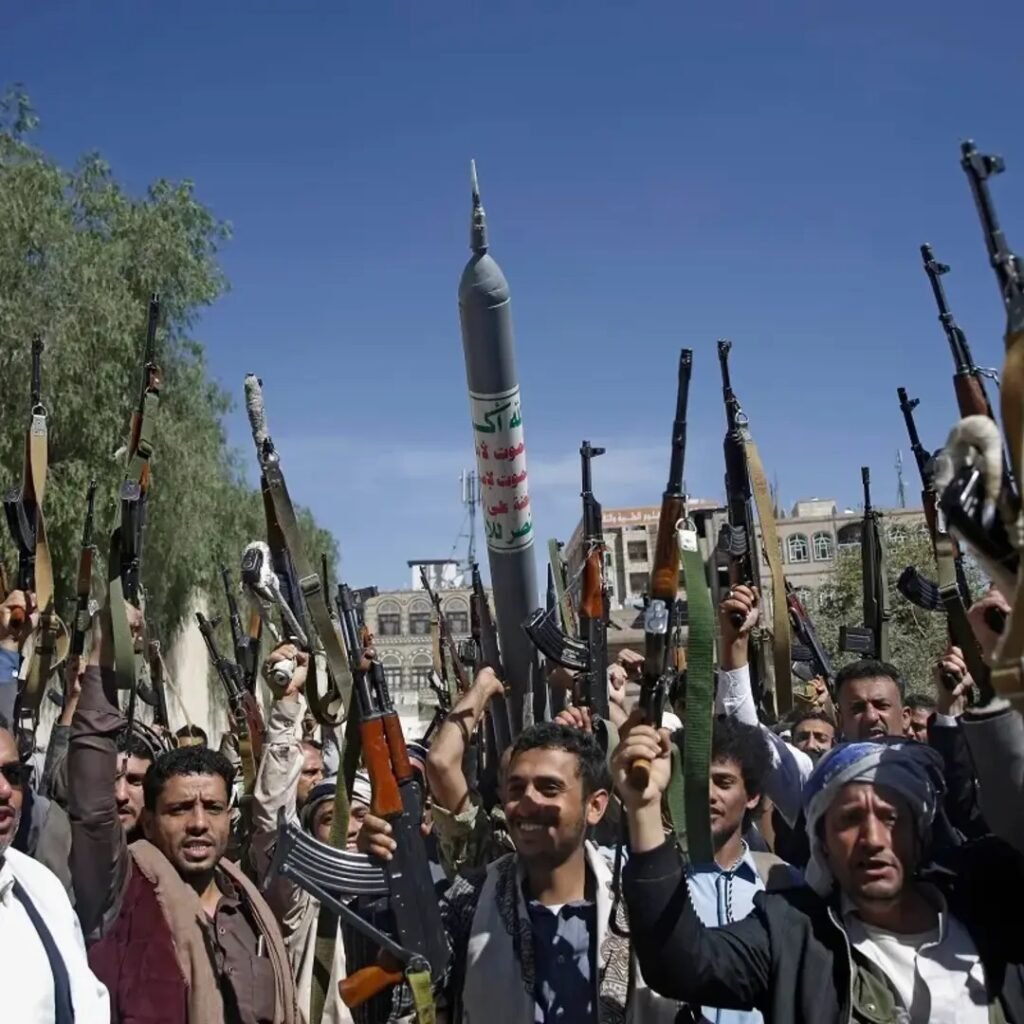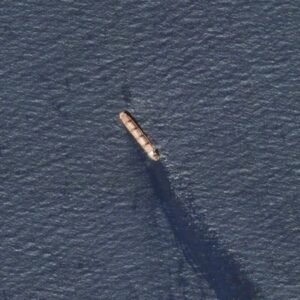On the second day of significant US operations against Iran-linked groups in response to a recent attack on American troops, the United States and Britain targeted 36 Houthi sites in Yemen. The strikes carried out late on Saturday, focused on buried weapons storage facilities, missile systems, launchers, and other capabilities that the Houthis have utilized to target Red Sea shipping, according to the Pentagon. The operation spanned 13 locations across the country.
These strikes are part of an ongoing conflict that expanded into the Middle East since October 7, triggered by Hamas’ incursion into Israel from the Gaza Strip. This conflict has drawn in various armed groups supported by Tehran.
Residents reported that the strikes caused buildings to shake in Houthi-controlled Sanaa. Yahya Sarea, the group’s military spokesperson, warned of a response and consequences to the US strikes. The Houthis did not disclose any casualties, but Houthi-run media described these as the “most violent” strikes yet.
The Yemen strikes run parallel to a US campaign of retaliation for the killing of three American soldiers in a drone strike by Iran-backed operatives in Jordan a week ago. On Friday, the US initiated the first wave of retaliation, targeting over 85 locations in Iraq and Syria associated with Iran’s Islamic Revolutionary Guard Corps (IRGC) and its supported militias, reportedly resulting in nearly 40 casualties.
The recent violence raises concerns about the potential for further escalation. Iran, while supporting various groups in the conflict, has avoided direct involvement so far. Mahjoob Zweiri, Director of the Gulf Studies Center at Qatar University, believes Iran will maintain its current approach, avoiding direct military confrontation.
Iran’s foreign ministry condemned the latest attacks on Yemen as a flagrant violation of international law by the United States and Britain, warning that such actions pose a worrying threat to international peace and security.
The Pentagon has reiterated its reluctance for war with Iran, asserting that it does not believe Tehran seeks war either. Meanwhile, US Republicans are pressuring President Joe Biden, a Democrat, to take a more direct stance against Iran.
Read More: Discover U.S. military aircraft diversity.
HOUTHI RESOLVE REMAINS UNWAVERING
The Houthi-controlled regions in Yemen continue their attacks, asserting solidarity with Palestinians amid Israeli strikes on Gaza. However, the US and its allies label these actions as indiscriminate, posing a threat to global trade.
The Red Sea shipping lanes, largely abandoned by major shipping lines due to Houthi activities, have led to increased costs and concerns about global inflation. This shift has also deprived Egypt of crucial foreign revenue from Suez Canal usage.
President Biden’s evolving strategy toward Yemen seeks to weaken Houthi operatives without aiming for the group’s defeat or direct confrontation with Iran, its main sponsor.
The strategy involves limited military strikes and sanctions, intending to punish the Houthis while mitigating the risk of a broader Middle East conflict. The US has conducted over a dozen strikes against Houthi targets in recent weeks.
Houthi spokesperson Sarea, in a social media statement, affirmed the group’s determination despite the latest wave of strikes. He stated, “These attacks will not deter us from our ethical, religious, and humanitarian stance in support of the resilient Palestinian people in the Gaza Strip.”
Prior to the major strikes, the US military’s Central Command reported more limited strikes, including targeting six cruise missiles prepared by the Houthis for launching against ships in the Red Sea. A Houthi anti-ship cruise missile was also struck around 4 a.m. in Yemen.
OMAN RAISES CONCERNS
British Defence Minister Grant Shapps dismissed the latest strikes as an escalation, emphasizing the successful targeting of launchers and storage sites involved in Houthi attacks. He expressed confidence that the recent strikes further degraded Houthi capabilities.
The United States noted that Sunday’s strikes received support from Australia, Bahrain, Canada, Denmark, the Netherlands, and New Zealand. The targets included missile capabilities, drone storage and operations sites, radars, and helicopters.
The Houthi military reported a total of 48 airstrikes by the United States and Britain in Yemen, with 13 in the capital Sanaa, 11 in Taiz Governorate, and nine in Hodeidah Governorate.
Oman’s Foreign Minister Al-Busaidi expressed grave concerns about the ongoing escalation in the region.
Latest Updated News: Maldives President Muizzu announces troop withdrawal and anti-India stance.













